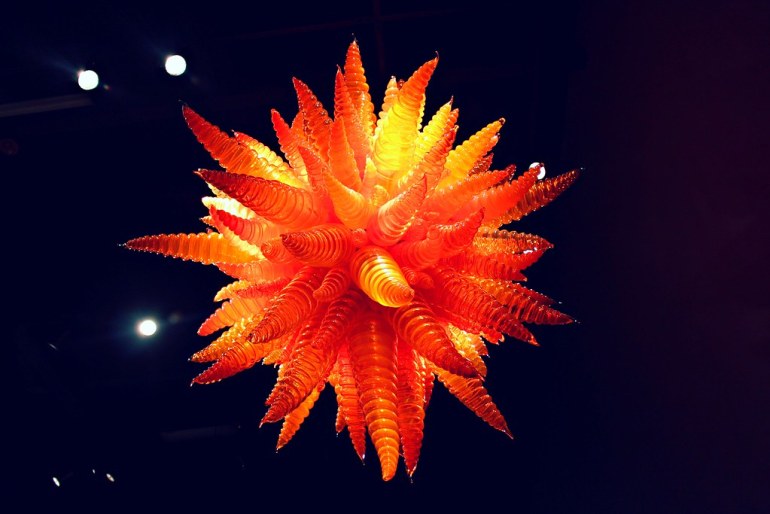
An absolute stunning display of what one man can do with his unparalleled imagination; Dale Chihuly is able to create new life with simple glass applied to heat. In every piece, each individual aspect of the whole looks fragile yet stands sturdy and never wary. Every design appears out of this world but have settle similarities in the Earthly realm. Chihuly’s artwork can be seen worldwide and we have all undoubtedly seen his work via television, movies, or while traveling, even if one is unbeknownst to his name.
An amazing aspect to his delicate process, that I truly admire, is the adaptation of cultures such as Native Americans, Ancient Europeans, and Middle Easterners. His signature pieces give a contemporary perspective through intricate and distinct detail in honor of their ancient pasts. At this specific museum, in reverence to Native Americans heritage, Chihuly clones past archeological finds. An example would be the designs of mud bowls – Chihuly creates many replicas of a Native American bowl designs (not pictured below) and gives it the essence as if it were still in use.
As an unplanned visit, I was very pleased as well as shocked to how much I really cherished his work. I’ve seen blown glass artwork before and never realized that Dale Chihuly was the grand daddy of them all! This is a must see stop if you’re in Seattle visiting the Space Needle – You will NOT be disappointed!
There’s even a convenient package that includes a visit to the top of the Space Needle and Self-guided Tour of the Chihuly Garden and Glass.













For more information on Chihuly Garden & Glass Museum, visit here.
Chihuly Garden & Glass Museum
305 Harrison Street
Seattle, Washington 98109
Phone: (206) 753-4940
“The aim of art is to represent not the outward appearance of things, but their inward significance.”
– Aristotle





Comments are closed.